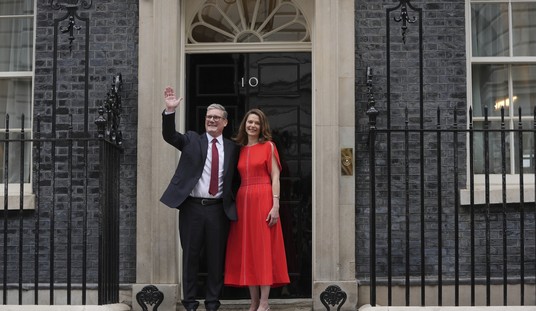Your mission, should you choose to accept it: Gather these basic home goods from the stores of progressive wonderland Venezuela. There, no problematic Congressional Republicans or Ted Cruz imaginations can muss with the progressive leader’s vision for radical redistributionism and equality, so all is going swimmingly. Here are your assignments:
Corn flour
Milk
Coffee
Cooking oil
Shampoo
Detergent
Dishwashing soap
Toilet paper
Watch BBC reporter Daniel Pardo search for these supplies.
Most of a day gone and three products for Pardo. He notes that studies show Venezuelans spend about eight hours a week in line or looking for household goods, often designating a family member to take a day off of work to accomplish this task.
This is socialism at its best. At its worst, it murders dissidents by the millions, starves multitudes, shuts down free speech, TV stations and newspapers. At its best, it is an elaborate torture device for the poor and working class who must stand in hours-long lines and call in favors and bribe officials just to merit the dignity of toilet paper. Yay for the proletariat.
Cue the Sunday New York Times. In a piece called “Why not Utopia?” Mark Bittman wonders why we don’t just try all the ideas of Marxist socialists again because that sounds so nice. Well, here’s the deal, Mark. The 20th century was full of people and nations bent on seeking Marxist socialist utopia and descending into barbarity in their search for “justice.” The historical blind spot necessary to say, “Marxist Utopia, why not?” is remarkable.
There are about 100 million reasons, and most of them are lying in mass graves around the world (if you can even find them). There are those who are still being put in graves in the service of this utopia, which requires a giant, all-powerful centralized force to tell everyone what to do and violently stop anyone who doesn’t agree with its ends. So, yes, there are some reasons why not.
Check out our intellectual betters, regurgitating the same, seductive, ultimately destructive nonsense of years gone by:
Those unable to get those jobs — and, given that one in six Americans qualifies for food stamps, it’s clear that there isn’t enough good work to go around — can survive only if income distribution is addressed. One way to do this is through the earned-income tax credit, a kind of reverse income tax, similar to Milton Friedman’s proposal and therefore acceptable to many Republicans.
But this assumes that people have work that pays a taxable income, and that’s not a safe assumption. Better is the Guaranteed Basic Income, which is not universally despised (it’s at least as old as Thomas Paine, was endorsed by the economist Friedrich Hayek and was recently considered by Switzerland), because it would simplify matters and help keep the economy moving. How all of this would be financed is of course a question; we could make the income tax look like it did 60 years ago, when the top rate was 91 percent (and, by the way, the economy was just fine), or we could institute a 100 percent tax on wealth over $1 billion, or … well, there’s no dearth of ideas. The way to address income distribution is to redistribute income…
It’s not as if this question hasn’t been well considered. There was Karl Marx, whose analysis was largely correct but whose reputation was soiled by the alternatives developed in his name. There was Edward Bellamy, whose popular 1888 book “Looking Backward” anticipated a kind of Internet and the ease with which things are made and delivered, and painted a picture of cooperation instead of competition, describing in sensible detail what was once called a socialist utopia. (We’d have to pitch this differently, of course, as both those words are forbidden in neoliberal society.) And there was even John Maynard Keynes, who suggested that a 15-hour workweek would eventually be considered full-time.
And why not? We need equally big thinkers now, and dreamers, and we need to be acting with them.
We have achieved a level of social equality barely imagined by progressives 50 years ago, but economic equality has gotten much worse. No one knows what the world will look like in 50 years, but if we resign ourselves to dystopia — in which capital has full control, as it nearly does now — we’ll surely have one.
Sure, why not?









Join the conversation as a VIP Member